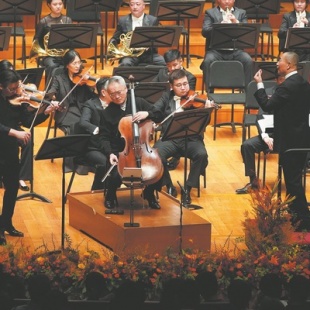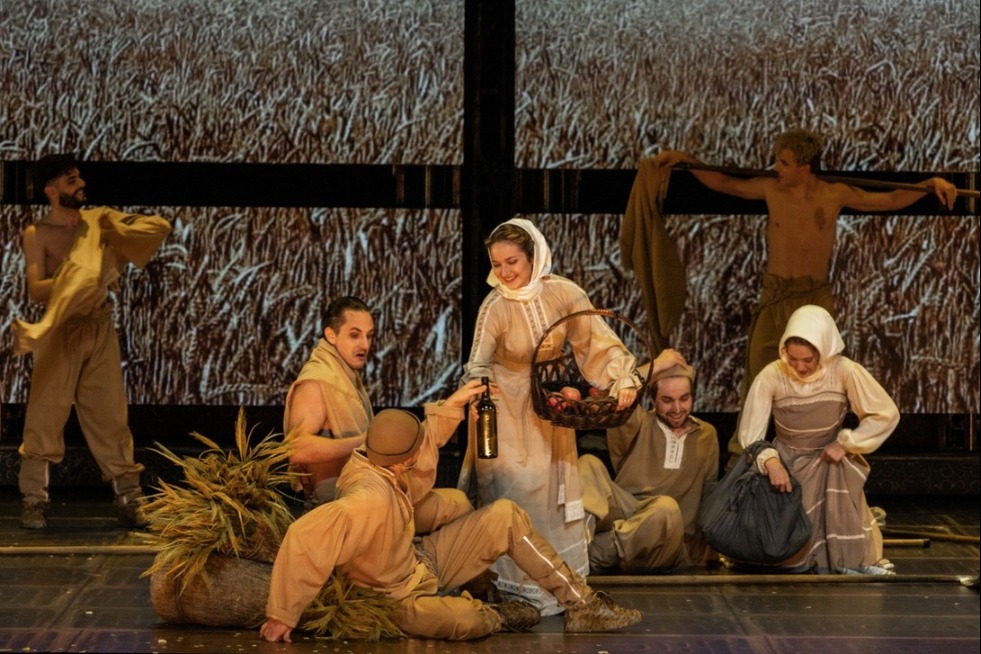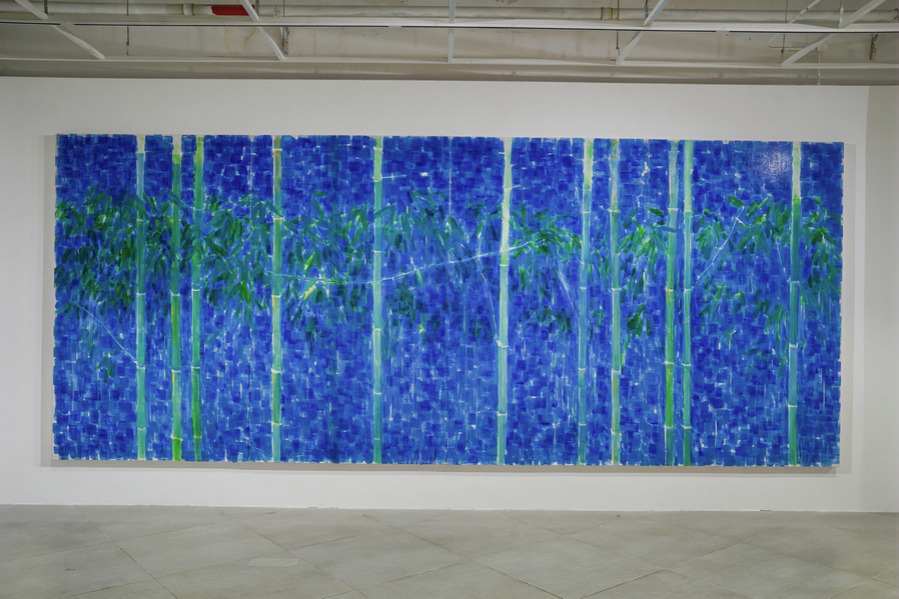Music festival harmonizes past and present


Composed in 1779, the piece, one of Mozart's most famous works written specifically for the violin, the viola and the orchestra, is played in three movements, showcasing the interplay between the violin and viola supported by a full orchestra.
"If a cellist were to attempt to play the viola part, there would be both technical and musical challenges. The highly skilled cellist Wang Jian did a great job," says Yu, an old friend of Wang who first invited the cellist to perform at the Beijing Music Festival in 1999.
"How hard is it for the cellist to interpret the viola part? Just imagine star tennis player Zheng Qinwen playing ping-pong using a tennis racket and winning," adds Yu.
"The viola's range sits higher than a cello, which can be physically demanding and requires mastery of the thumb position and fluent shifting. Mozart's style calls for light, delicate articulation, especially in the interplay between the violin and viola," he says. "The cellist would need to overcome challenges in range, articulation, tone production, and ensemble balance to maintain the integrity of Mozart's delicate and intricate writing."
Considered a child prodigy, Wang was enrolled in the primary school affiliated to the Shanghai Conservatory of Music at 9.
In 1979, celebrated violinist Isaac Stern made a historic visit to China with a documentary crew. In 1981, the documentary about Stern's visit titled From Mao to Mozart: Isaac Stern in China was released, winning an Oscar for Best Documentary. Wang became known internationally as the child prodigy in the film who played the cello with seriousness.
In 1985, Wang entered the Yale School of Music. The following year, he made his debut at Carnegie Hall. Since then, he has embarked on an international career.
"When I first performed at the Beijing Music Festival in 1999, I had lived and toured abroad for decades. The festival's atmosphere created an intimate connection between the performers and the audience, which impressed me and allowed me to frequently return to my home country," says Wang, 56. "The festival has made great contributions to the country's booming classical music scene."
Tan says he will embark on a trip to France with the China National Symphony Orchestra from Wednesday to Oct 15, performing in Toulouse, Aix-en-Provence and Paris to celebrate the 60th anniversary of China-France diplomatic relations.
They will bring the same programs as the Beijing concert, which also include French composer Maurice Ravel's famous Bolero and Russian composer Igor Stravinsky's The Firebird.
"The concert celebrates musical diversity and cultural fusion. It is a powerful reminder of music's ability to transcend boundaries, inspiring us for the upcoming performances in France," says Tan.
Contact the writer at chennan@chinadaily.com.cn





































